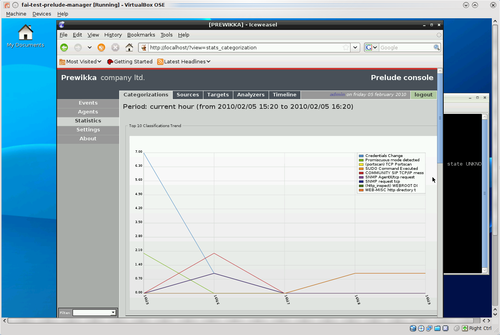Internet ça a du bon. Enfin, pas toujours .. Et en combinant une jolie boulette avec quelques outils, on peut réaliser des choses dont personne n’aurait pensé au début …
En bref, et notamment pour faire suite au challenge que certaines personnes m’ont lancé au SSTIC 2010 (très bonne année d’ailleurs), le voila: LE pare-feu OpenOffice ! Mais attention: pas un truc codé à l’arrache, nan, un vrai pare-feu avec un design toussa
Donc, comment ça marche:
- on veut filtrer des paquets avec OpenOffice, donc on a besoin d’OpenOffice
- n’ayant pas eu le temps de planifier le portage d’OpenOffice en mode noyau, j’ai donc fait l’inverse: amener les paquets en espace utilisateur avec nfqueue + python
- on manipule OO avec python-uno
Donc, je commence à coder: on crée une feuille calc avec les numéros de ports à filtrer, je récupère la valeur des cellules (et là je peux vous le dire: quand on a l’habitude de LaTeX, OO c’est pas la joie), et on s’en sert pour filtrer les paquets récupérés par nfqueue.
Premier problème: pour utiliser nfqueue, il faut être root. Et faire tourner OpenOffice en root (donc avec une interface …
read more
